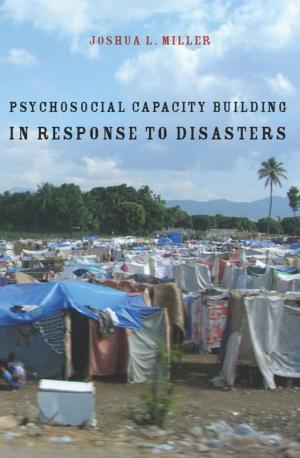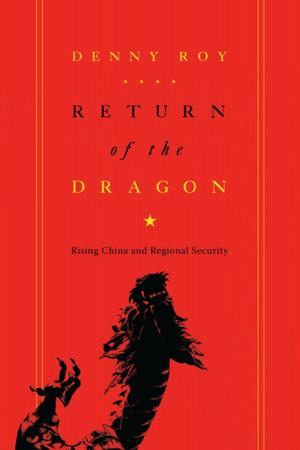Hidden Atrocities
Japanese Germ Warfare and American Obstruction of Justice at the Tokyo Trial
Nonfiction, History, Military, Biological & Chemical Warfare, Asian, Japan, World War II| Author: | Jeanne Guillemin | ISBN: | 9780231544986 |
| Publisher: | Columbia University Press | Publication: | September 26, 2017 |
| Imprint: | Columbia University Press | Language: | English |
| Author: | Jeanne Guillemin |
| ISBN: | 9780231544986 |
| Publisher: | Columbia University Press |
| Publication: | September 26, 2017 |
| Imprint: | Columbia University Press |
| Language: | English |
In the aftermath of World War II, the Allied intent to bring Axis crimes to light led to both the Nuremberg trials and their counterpart in Tokyo, the International Military Tribunal of the Far East. Yet the Tokyo Trial failed to prosecute imperial Japanese leaders for the worst of war crimes: inhumane medical experimentation, including vivisection and open-air pathogen and chemical tests, which rivaled Nazi atrocities, as well as mass attacks using plague, anthrax, and cholera that killed thousands of Chinese civilians. In Hidden Atrocities, Jeanne Guillemin goes behind the scenes at the trial to reveal the American obstruction that denied justice to Japan’s victims.
Responsibility for Japan’s secret germ-warfare program, organized as Unit 731 in Harbin, China, extended to top government leaders and many respected scientists, all of whom escaped indictment. Instead, motivated by early Cold War tensions, U.S. military intelligence in Tokyo insinuated itself into the Tokyo Trial by blocking prosecution access to key witnesses and then classifying incriminating documents. Washington decision makers, supported by the American occupation leader, General Douglas MacArthur, sought to acquire Japan’s biological-warfare expertise to gain an advantage over the Soviet Union, suspected of developing both biological and nuclear weapons. Ultimately, U.S. national-security goals left the victims of Unit 731 without vindication. Decades later, evidence of the Unit 731 atrocities still troubles relations between China and Japan. Guillemin’s vivid account of the cover-up at the Tokyo Trial shows how without guarantees of transparency, power politics can jeopardize international justice, with persistent consequences.
In the aftermath of World War II, the Allied intent to bring Axis crimes to light led to both the Nuremberg trials and their counterpart in Tokyo, the International Military Tribunal of the Far East. Yet the Tokyo Trial failed to prosecute imperial Japanese leaders for the worst of war crimes: inhumane medical experimentation, including vivisection and open-air pathogen and chemical tests, which rivaled Nazi atrocities, as well as mass attacks using plague, anthrax, and cholera that killed thousands of Chinese civilians. In Hidden Atrocities, Jeanne Guillemin goes behind the scenes at the trial to reveal the American obstruction that denied justice to Japan’s victims.
Responsibility for Japan’s secret germ-warfare program, organized as Unit 731 in Harbin, China, extended to top government leaders and many respected scientists, all of whom escaped indictment. Instead, motivated by early Cold War tensions, U.S. military intelligence in Tokyo insinuated itself into the Tokyo Trial by blocking prosecution access to key witnesses and then classifying incriminating documents. Washington decision makers, supported by the American occupation leader, General Douglas MacArthur, sought to acquire Japan’s biological-warfare expertise to gain an advantage over the Soviet Union, suspected of developing both biological and nuclear weapons. Ultimately, U.S. national-security goals left the victims of Unit 731 without vindication. Decades later, evidence of the Unit 731 atrocities still troubles relations between China and Japan. Guillemin’s vivid account of the cover-up at the Tokyo Trial shows how without guarantees of transparency, power politics can jeopardize international justice, with persistent consequences.















